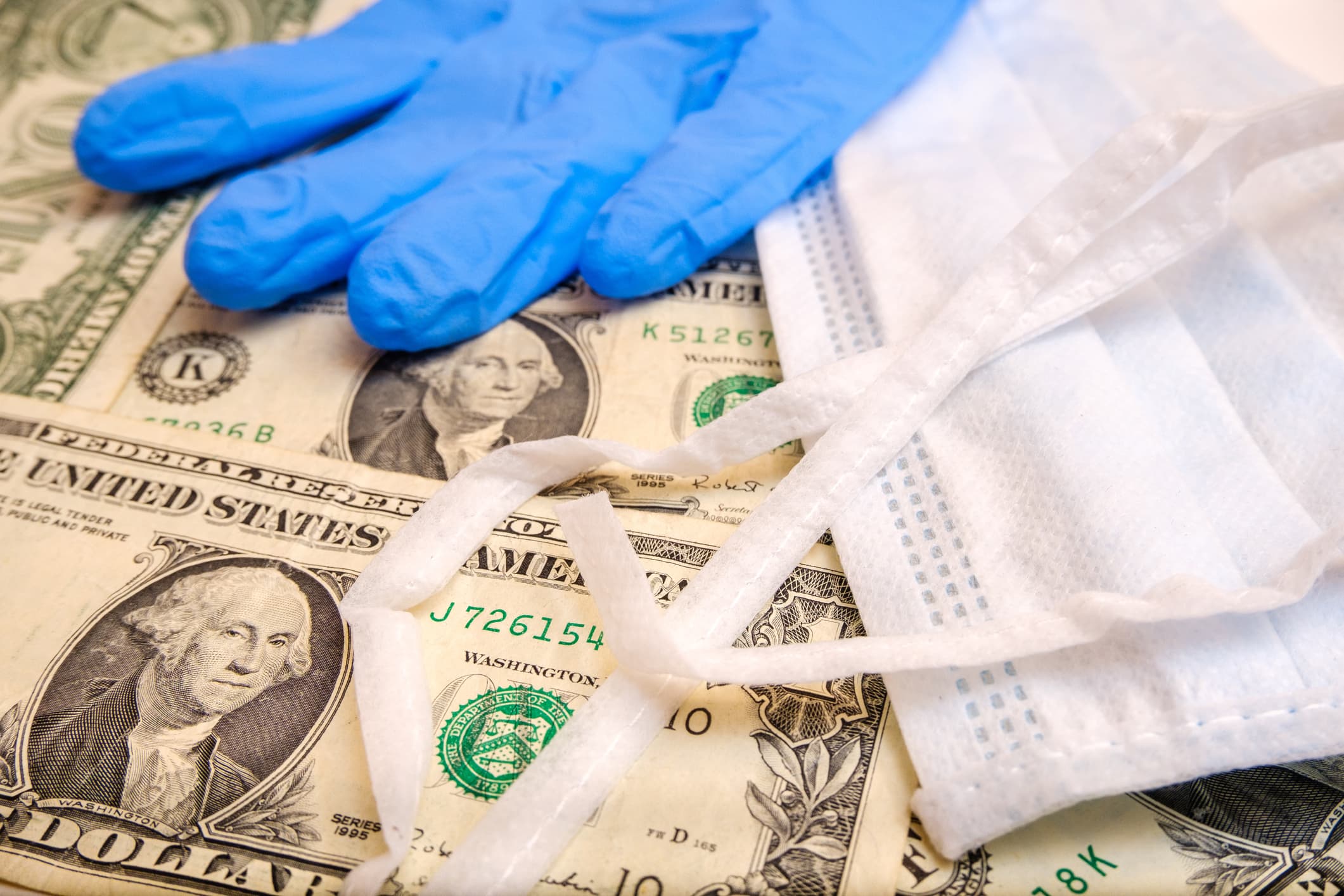
mediamasmedia
The stock market is acting strangely these days, with headlines about market rallies next to ones about historic unemployment figures and companies filing for bankruptcy.
You can't figure it out. But you may be wondering if you should take advantage of the upswing and pull some money out of the market.
After all, before this recent rally, investors were suffering some of their steepest losses since the financial crisis a decade ago. You might have seen your dreams of retirement, or finally gathering a down payment on a house, exploding. And then suddenly, the storm clouds seem to have cleared.
If you entered this year with a $500,000 portfolio, split between stocks (70%) and bonds (30%), you'd have watched your savings shrivel to around $392,000 toward the end of March, according to data provided by Morningstar Direct.
Now that portfolio is back up to more than $470,000.
More from Personal Finance:
Those $600 unemployment checks are delayed
Some gig workers are getting $0 in unemployment benefits
College enrollment likely to drop due to longer closures
If you're tempted to pull money out of the market, first consider what you would do with the funds, said Sara Stanich, a Montauk, New York-based certified financial planner and founder of Cultivating Wealth.
"For a concrete goal such as a major purchase, it could make sense to pull from investments and set aside the funds needed," Stanich said. "For a long-term goal such as retirement, the portfolio probably needs to last a long time, and a portion should be invested for the long term."
Let's be a little more specific about "short-term" and "long-term." Scott Weiss, a CFP at Weiss Financial Group in Mahopac, New York, said he's recommending that clients who need to meet a financial goal within the next 12 months go to cash.
And generally, he said, his rule of thumb is that "any money needed within a five-year time frame should not be invested in risk assets."
Ideally, you have a diversified portfolio blended between stocks and forms of fixed income, like cash and bonds, that allow you to live on the latter until the former recovers from the coronavirus' impact on the market.
However, Weiss said, "if the money was invested and will be needed to purchase a house in six months, I would recommend moving into cash now."
If even with the recent market volatility, you're fortunate enough to have enough in an investment account to cover an approaching goal, it can make sense to step back from stocks, said Alex Doll, a CFP at Akron, Ohio-based Kohmann Bosshard Financial Services.
"If a client has a goal of, say, retirement and they know they need $1 million and they currently have $1 million, then it absolutely would make sense to get more conservative," Doll said.
That's what Ken Moraif, a North Dallas, Texas-based CFP at Retirement Planners of America, did last month for his clients, all of whom are near or in retirement.
For us, the biggest mistake is losing money, not missing out on the gains we could have made.
Ken Moraif
CFP at Retirement Planners of America
"We sold all of our equities," Moraif said, adding that he's moved clients' money into government bond money market funds. "We still believe there's a lot of downside now.
"We want to protect our clients from that," he added. "For us, the biggest mistake is losing money, not missing out on the gains we could have made."
Yet if you don't have enough saved to meet an upcoming goal, you might have to stay invested, Doll said.
Another option, if you can't put off a goal but don't have enough money in your investment account now, is to rethink what you could still do, experts say.
Maybe you should look at a public school for your child instead of a private one, for example, or maybe you don't need as big a house as you might have wanted.
Most younger investors, who typically have a lot of time until they'll need to reach their financial goals, should avoid the temptation to dig into their investments — even in upswings, Doll said.
"This is the time to continue to keep adding to those retirement plans, as you are taking advantage of buying at a lower price," he said.
Also: You want to be mindful of the costs you could be dinged with from selling your investments, Stanich said.
Although the federal CARES Act temporarily waived the 10% early withdrawal fee for people who pull money from retirement accounts before age 59½, you'll still be hit with a tax bill, she said. (Although you can pay it off over multiple years.)
When making withdrawals from other investment accounts, you'll typically face capital gains.
"Consider those carefully," Stanich said. "Ask your financial advisor before selling.
"You don't want a surprise at tax time."
"Market" - Google News
April 30, 2020 at 03:38AM
https://ift.tt/2Sg9BEQ
The stock market is up from its coronavirus dip. Should you get out? - CNBC
"Market" - Google News
https://ift.tt/2Yge9gs
Shoes Man Tutorial
Pos News Update
Meme Update
Korean Entertainment News
Japan News Update
/cloudfront-us-east-1.images.arcpublishing.com/bostonglobe/VNG7YMZTRWJ5WBFTJ5NVETPCQI.jpg)
No comments:
Post a Comment